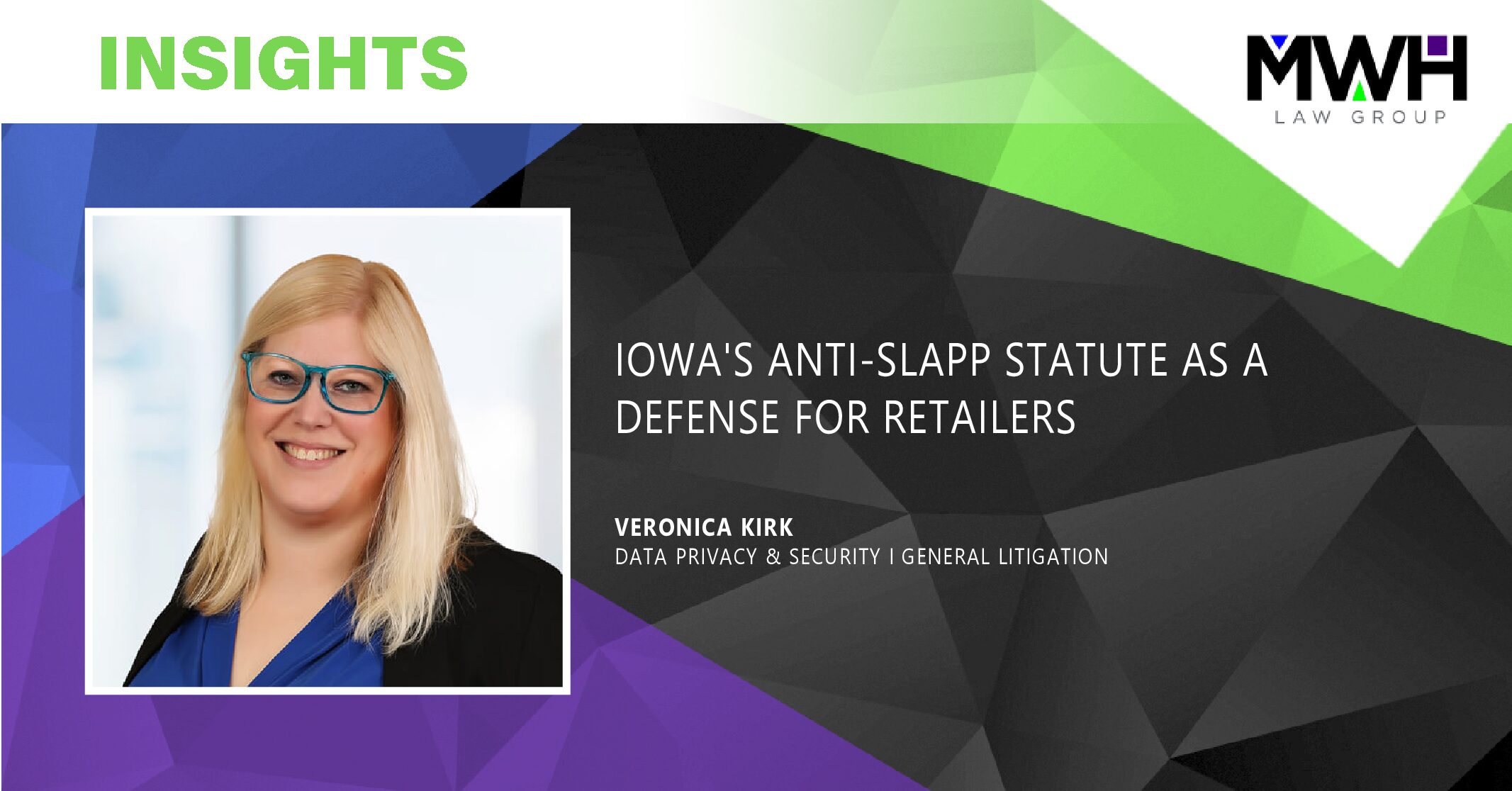Iowa’s Anti-SLAPP Statute as a Defense for Retailers

Iowa recently enacted a law called the Uniform Public Expression Protection Act on May 19, 2025 at Iowa Code chapter 651. This law creates a way to quickly dismiss lawsuits that target individuals or entities for exercising their constitutional rights to free speech, press, assembly, petition, and association, especially on matters of public concern. These types of lawsuits are commonly known as Strategic Lawsuits Against Public Participation (SLAPPs), which leads to the common name for law designed to prevent these lawsuits: anti-SLAPP statute.
The purpose of the anti-SLAPP statute is to compress the timeline of the litigation and reduce expenses for defendants who are wrongfully accused. The statute provides for early resolution of these types of lawsuits as well as an automatic stay on discovery, which can be prohibitively expensive for defendants.
On its face, this statute does not appear to apply to claims asserted “against a person primarily engaged in the business of selling or leasing goods or services if the cause of action arises out of a communication related to the person’s sale or lease of goods or services.” Iowa Code section 652.2(3)(c) (2025). This wording means that the statute is probably not applicable as an affirmative defense for the general business of a retailer, such as premises liability or products liability, but may be helpful for those lawsuits which include more unusual claims against retail entities such as malicious prosecution or defamation.
An important consideration to keep in mind is that because the statute compresses litigation timelines, if you plan to remove your case to federal court, the court may find that the Iowa statute is invalid because it is incompatible with the Federal Rules of Civil Procedure. Each Circuit Court of Appeals has addressed these type of statutes separately. As of this writing, it does not appear that the 8th Circuit Court of Appeals has specifically addressed the question of whether a state anti-SLAPP law is applicable in federal court. However, the United States District Court for the Northern District of Iowa has previously determined that a California anti-SLAPP law is inapplicable in Iowa federal court. Nunes v. Lizza, 476 F. Supp. 3d 824, 845-46 (N.D. Iowa2020). Additionally, the United States District Court for the District of Minnesota has addressed the Minnesota state anti-SLAPP statute and determined that it is inapplicable in federal court because it is incompatible with the Federal Rules of Civil Procedure. Unity Healthcare, Inc. v. County of Hennepin, 308 F.R.D. 537, 542-43 (D. Minn. 2015). If you plan to utilize the compressed timeline and additional protections in Iowa’s statute, you should carefully weigh these advantages against the advantages of proceeding in federal court.

